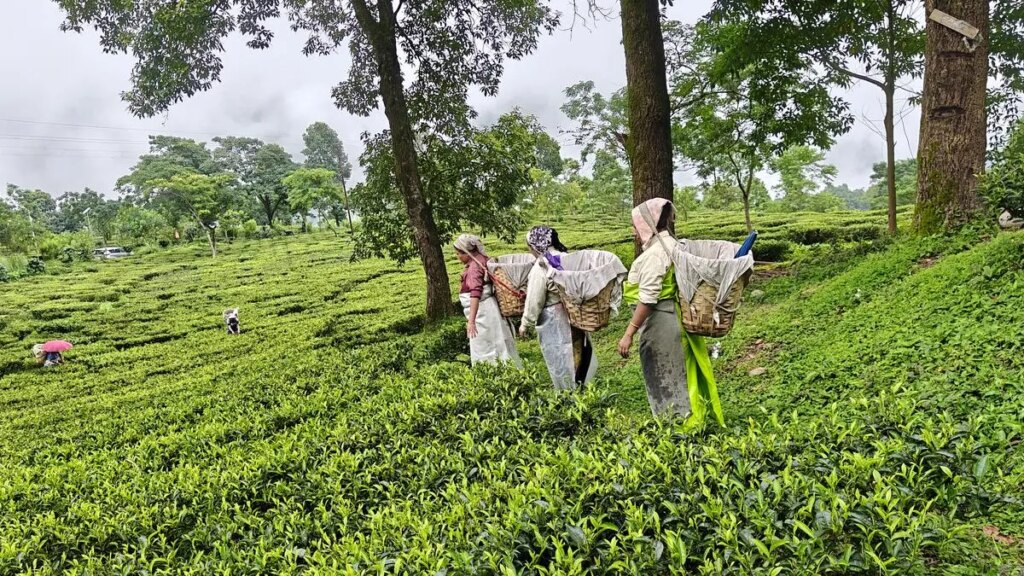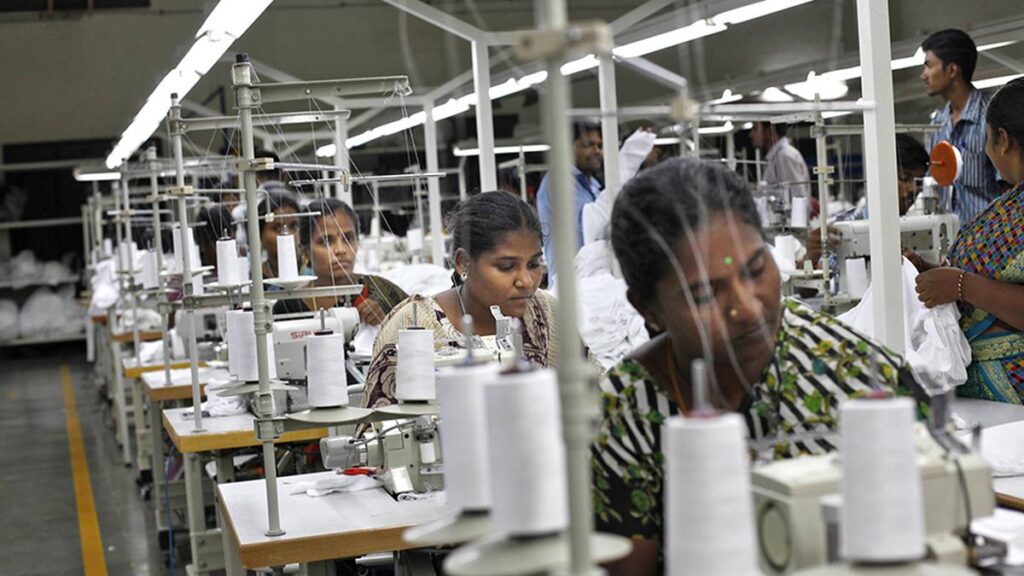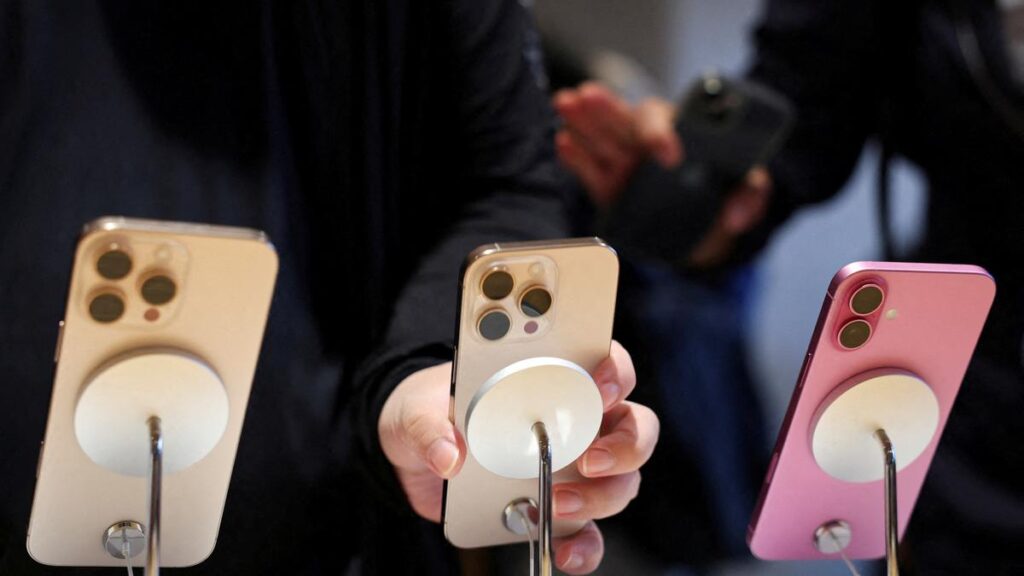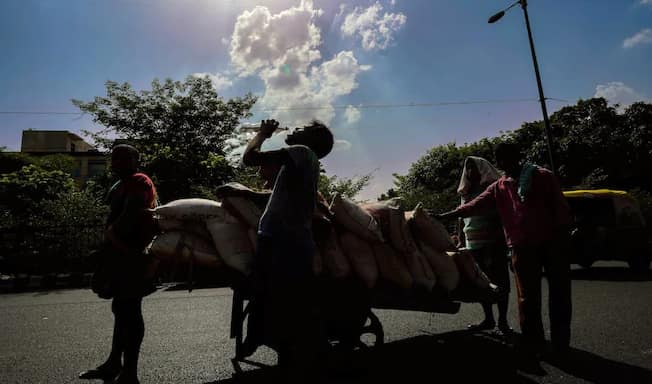[ad_1]

Perfect timing and planetary alignment is paramount to the plucking of this exclusive tea
| Photo Credit:
Srikrishnan PC
A taste of tea, at ₹40,000 a kg? Yes, if you are sipping Silver Tips Imperial from the Makaibari tea estate. It takes a visit to the exclusive estate in Kurseong, nestling in the foothills of Darjeeling, to understand why the Makaibari brand is so pricey. Here, tea is not just grown but nurtured like a loved child.
Moon harvest
Perfect timing and planetary alignment is paramount to the plucking of this exclusive tea. Silver Tips Imperial is made only a few nights a year — during full moons when the sun, moon, and planets align. The estate tracks the cycles of the moon and planets, it follows the biodynamic calendar, for this is when the plant has the most energy.
On those full moon nights, women tea pluckers humming folk songs navigate the fields carefully, gently picking only a leaf and a bud. Alongside them, men carry mashals (torches) to light the way. The leaves are taken to the factory and processed before first light, says Parveez Hussain, Makaibari’s in-house tea sommelier.
The estate believes this attentive plucking, under the influence of the moon and planets, gives Silver Tips its calm, almost spiritual quality. The tea is a soft oolong with notes of honey, white peaches, and wildflowers. It is made just a few times a year, and only in small amounts. It is priced at ₹1,950 for 50 grams.
A labour of love
As one follows the path of the leaf — from the garden to the final pack, the Estate manager Sanjay Das, with over 30 years’ experience as a planter, highlights the steps that make Makaibari a premium brew.
Plucking: Good tea starts with young leaves — either two leaves and a bud, or a bud with one leaf. For Silver Tips, they pick only the unopened buds, always by hand.
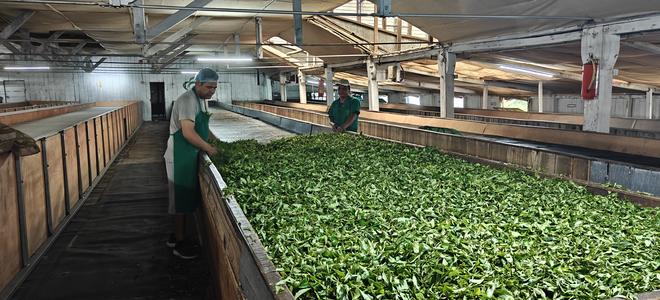
The fresh leaves are spread over withering troughs. Warm air from gentle blowers helps them lose moisture slowly. This brings out the flavour
| Photo Credit: Srikrishnan PC
Withering: The fresh leaves are spread over withering troughs. Warm air from gentle blowers helps them lose moisture slowly. This brings out the flavour.
Rolling: Most teas are rolled in machines. But for Silver Tips, it’s done by hand, very gently. That way, the bud stays whole.
Oxidation: This step is timed carefully so it keeps its soft, floral feel.
Drying: Warm air dryers bring the moisture down. This locks in the aroma.
Sorting and Grading: The buds are sorted by shape and size. They are never crushed.
Packaging: The tea is packed in airtight packs to keep it fresh.
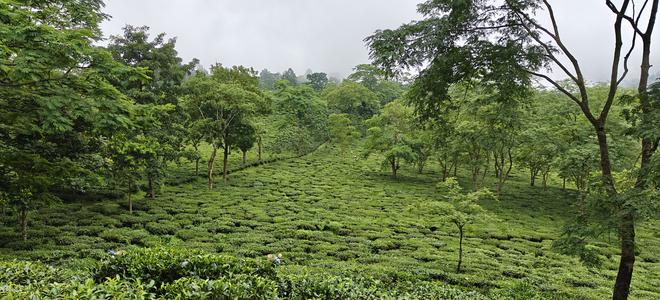
The farm follows the cycles of the moon and planets. No chemical fertilizers are used. Compost is made by hand, right at the estate
| Photo Credit: Srikrishnan PC
“We continue to follow the ways from Rajah Banerjee’s time,” says Das. “No modern machines. No shortcuts. We trust the method.” Rajah Banerjee was the fourth-generation owner of the Makaibari estate who steered it to its exalted place before selling his stake to Kolkata-based Luxmi group.
Over the years, the tea has been shared with many notable individuals. Queen Elizabeth II received Silver Tips Imperial as a gift from Prime Minister Narendra Modi and it was specially selected for gifting at the coronation of King Charles III.
Retail reach
Today, Makaibari produces over 90,000 kg of tea and exports around 60 per cent, while the rest is sold in domestic markets. It has exclusive outlets at Kolkata Airport (domestic terminal), Bagdogra Airport, the international terminal of Mumbai Airport, and also in Varanasi and Pune. There are plans to expand to more metro airports. Meanwhile, a new store is coming up in Goa.

The group now manages 26 tea gardens, including four estates in Africa
| Photo Credit: Srikrishnan PC
In Kolkata, the group has opened the Makaibari Bungalow at Taj Bengal — a tea and lifestyle space that offers tastings, handcrafted items, and a glimpse into the estate’s story.
Global growth
The group now manages 26 tea gardens, including four estates in Africa, making it the fourth-largest tea producer in India. It also recently acquired Brew Tea Co, a UK-based brand, to grow its global presence. But Makaibari’s methods remain the same. “We don’t want to change what works,” says Das.
The writer was in Makaibari Tea estate, Darjeeling, at the invitation of Luxmi Group
Published on July 29, 2025
[ad_2]
Source link

